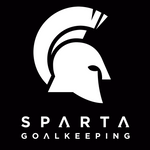
Goalkeeping Comebacks - Part One
It seems like forever since we were able to do the simplest things in life such as see our friends, go to the pub and playing or watching football. In reality it is just over three weeks since the aforementioned became pipe dreams, but without or beloved game to look forward time appears to have stood still.
One day this will all be over and we at Sparta HQ cannot wait for the day that football is again permitted for all and we can enjoy it in the same way we always have.
To give inspiration and hope that all will be well even in the darkest of times, we're going to take you through journeys of hardship that have paved the way for some of the biggest comebacks in goalkeeping history.
Here is part one of our segment on heroic goalkeeping comebacks.
Craig Gordon
Craig Gordon is undoubtedly a talented goalkeeper and back in 2007 he was so highly rated that Sunderland forked out a British record £9million to bring him to the Premier League from Hearts.
At twenty-six years-old Gordon was Scotland’s number one and had impressed at Tynecastle, winning the Scottish Cup 2006 and there were many curious onlookers to see how he would fare in England’s top division.
The Scotland international began the 2007/08 season as newly promoted Sunderland’s first choice, which started perfectly in a 1-0 win over Tottenham at the Stadium of Light.

As Roy Keane’s men stuttered after a decent start, a 7-1 defeat away to Everton in November saw Gordon pay the price for his defence’s shortcomings but regained his place quickly and ended up playing all but four of Sunderland’s league fixtures.
The 2008/09 the Scot suffered the first in a string of injuries and upon his return to the first team in 2009/10, a collision with future Sunderland man Jermaine Defoe resulted in a broken arm for Gordon, which plagued him for the remainder of his tenure on Wearside.
He would go onto leave the club in 2012 having made just fifteen further appearances and went without a club for two full seasons.

The Edinburgh native could be forgiven for thinking at that stage that his career was over, particularly after a stint training with Rangers at the end of which he was not offered a contract.
The majority of Gordon’s two-year stint without a playing contract would be spent making punditry appearances and a casual coaching role with Dumbarton. It would have appeared that he was preparing for a life post-playing days.
However, Ronny Deila then Celtic boss, offered Gordon a contract and would soon become a fixture in the first team at Parkhead.

After an impressive start to the season, Gordon would earn a recall to the Scotland squad and a terrific inaugural campaign would result in a Scottish League Cup and a SPL title to triple his major honours haul. His exploits at Celtic would even attract the attention of Chelsea, who were said to be monitoring the former Sunderland and Hearts man to act as backup to Thibaut Courtois.
Despite now second choice to Frazer Forster, Gordon can boast the most successful period of his career coming after the supposed climax.
Harry Gregg
A man who featured in his own dedicated Sparta Spotlight following his passing earlier last year, but Harry Gregg’s comeback after the Munich air disaster in 1958 was a glimmer of light in a dark time for football.
On that faithful night where he lost many a teammate and friend, Gregg witnessed and indeed had to do things that no human being should ever have to go through. What started as a journey back from a job well done in dispatching Red Star in the European Cup Quarter Final, ended in Gregg pulling bodies from the burning wreckage of the plane that succumbed to an icy runway.

The late Harry Gregg was hailed by Bobby Charlton as a hero and embodied the spirit of the Busby Babes, who rebuilt to become a dominant force in English and European football after the tragedy that tore one the most talented squads in history.
Just two weeks later, United would play their first game since the disaster in a 1-1 draw at home to Nottingham Forest and Harry Gregg just two weeks after the disaster in which he selflessly out his life on the line, would start in goal. This despite the inevitable trauma that would follow such a harrowing incident.
Gregg would also star as United’s number one as they reached the FA Cup Final in the most testing of circumstances, eventually losing to Bolton inspired by Nat Lofthouse.

Not only this, Gregg was part of the squad and played every game in the 1958 World Cup for Northern Ireland, their first ever major tournament. He would start every game in an inaugural World Cup campaign that saw them qualify for the Quarter Finals after a one of play-off victory over Czechoslovakia, after the two finished level on points in the group.
Gregg, alongside his Manchester United teammate Jackie Blanchflower, would bow out to France in the Quarter Final in Norrpining, Sweden, but going through something so physically and mentally damaging to achieve so much in the very same year for club and country is testament to the man that Harry Gregg was.
